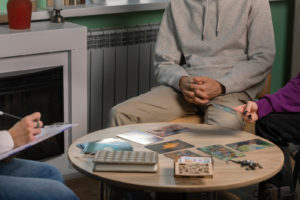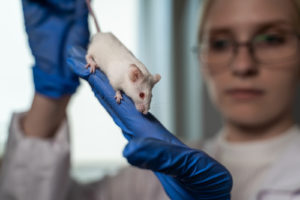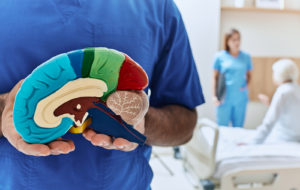How to Become an Experimental Psychologist

Even though the mind is crucial to our life, we know relatively little about the way it works. Nevertheless, we continue to discover more about the mind and how it operates every year. The study of cognitive functions and the human brain, the drivers of personality and particular actions, how past experiences shape present perspectives on life, and the core characteristics that makeup character are all topics covered in the discipline of experimental psychology (sometimes known as "research psychology").
Experimental psychology can be a fascinating, challenging, and rewarding discipline for those who are interested in this career path. Becoming an experimental psychologist isn't difficult if you follow the procedures and recommendations outlined below.
Step 1: Complete an Experimental Psychology Degree
Experimental psychologist candidates normally require a master's or higher degree to work in their profession. Bachelor's degree holders sometimes help other researchers with the planning and execution of investigations, but they're seldom given the chance to publish or take the reins of experiments themselves. A master's degree increases control over the process, while a Ph.D. — the highest degree presently given in the subject — prepares people to take on leadership responsibilities.
Students must naturally complete a bachelor's degree before applying to master's programs. Before a student can apply to a master's program, extra post-baccalaureate prerequisites must be satisfied if their bachelor's degree was not in psychology or a closely related discipline. Ph.D. applicants typically require a master's degree; however, in rare situations, combined master's/doctoral programs enable students to seamlessly combine the two degrees, making bachelor's degree holders eligible to apply for both degrees simultaneously.
- Associate's Degree – A two-year degree that can provide an introduction to experimental psychology.
- Bachelor's Degree – A four-year degree that will provide the basic education for an experimental psychologist.
- Master's Degree – The minimum education required for a licensed experimental psychologist. You will need a bachelor’s degree and an additional two years of study.
- Doctorate Degree – The highest level of education an experimental psychologist can achieve. You will be required either a bachelor’s degree or master’s degree, and an additional three to six years of study, and a number of hours working as an intern.
Step 2: Become Licensed as an Experimental Psychologist
License requirements always apply to experimental psychology. For more information on getting your license, speak with the psychology board for your state, which will oversee your licensing exam (see below).
Internship / Practicum Experience
An internship is usually required for those working toward a master’s degree or doctorate in experimental psychology. The number of hours required will vary depending on the state in which you will be practicing.
Examination
The psychology board in your state will oversee your licensing exam. Contact a university psychology program for assistance if you're unsure of where the board is located. Typically the exam taken for licensure will be the Examination for Professional Practice in Psychology (EPPP). There will be a fee involved, and depending on the state, you may need to retake the exam every few years.
State Requirements
Not all state requirements are the same, but most will usually require a master’s degree or higher, a number of hours worked as an intern, passing an exam, and an application for licensure. Contact the psychology board for your state for additional information on obtaining your license. If you don't know where the board is, get in touch with a local university psychology department, and they can point you in the right direction.
Step 3: Apply for an Experimental Psychologist Job
The majority of experimental psychologists devote a significant amount of their daily time to interacting with the subjects of their research, outlining the goals of the study, conducting experiments, and debriefing subjects afterward.
Experimental psychologists require a broad range of abilities, character qualities, and knowledge to perform their vast range of tasks, including possessing:
• A complete understanding of the scientific method
• An excellent moral compass
• Knowledge of psychological principles and techniques
• Outstanding powers of observation, problem-solving, and communication
• The capacity to execute sophisticated analyses
• Compassion and endurance with subjects
• The capacity to raise money and support organizations
• Enthusiasm for pursuing theoretical issues
Experimental psychologists have to create tests, gather materials, get cooperation from students or colleagues, evaluate data, and write academic articles for publication in peer-reviewed journals in addition to actually performing tests. Many devote effort to writing proposals in order to get funding and grants for future research.
It should be noted that money is more likely to be granted to those who make a convincing case for study in the interests of public safety or successful results for mental health.
What Careers Can I Pursue With an Experimental Psychology Degree?
An experimental psychologist does much of the same work as clinical psychologists but in different contexts. The experimental psychologist could collaborate with clinical psychologists at these organizations if, for example, the population they picked for their research is made up of people who are confined to mental health facilities.
Police forces, crime labs, or governmental organizations are good places for experimental psychologists to obtain employment if they have an interest in the legal system or criminal justice. These psychologists might look for commonalities among offenders and make inferences that could assist in finding and apprehending them.
Many experimental psychologists limit themselves to the academic world, where they spend some of their time teaching and the rest of the time doing scientific research. Given that entry into a profession in psychology often entails some kind of clinical training or apprenticeship, the fact that experimental psychologists can find work on college campuses indicates a range of alternatives exists for individuals still pursuing their education.
Where Can I Work With an Experimental Psychology Degree?
With their broad range of duties, experimental psychologists may operate in a number of settings, and their areas of specialty can be quite varied.
Experimental psychologists are present in:
• Hospitals
• Clinics
• Assisted living facilities
• Nursing homes
• Public health centers
Some experimental psychologists concentrate their research on certain populations, such as children, teenagers, young adults, or the elderly. Others may concentrate on patterns that result from particular interactions, such as those between couples, parents and children, or caretakers and the elderly. As a result, an experimental psychologist could work at:
• A school
• A retirement community
• A similar institution for people of a certain age
Some experimental psychologists often visit workplaces to get greater insight into how people behave at work and respond to various settings.
Step 4: Learn About Experimental Psychologist Salaries
The U.S. Bureau of Labor Statistics (BLS) projects that from 2019 until 2029, employment prospects for psychologists as a whole will grow at a rate that's comparable to the national average for all jobs. Median annual salaries for "all other" psychologists (a category that includes experimental psychologists) were $102,900 in the United States as of 2021. BLS reported that "all other" psychologists earn median annual salaries as high as $113,040 in Alaska and as low as $106,200 in Iowa, states that have some of the highest employment levels for this job category.
Because research is the primary emphasis of experimental psychologists, the federal government, colleges, universities, and professional schools, as well as management, scientific, and technical consulting firms, are some of the top employers for this field. Additionally, there are some experimental psychologists that have their own consulting businesses.








